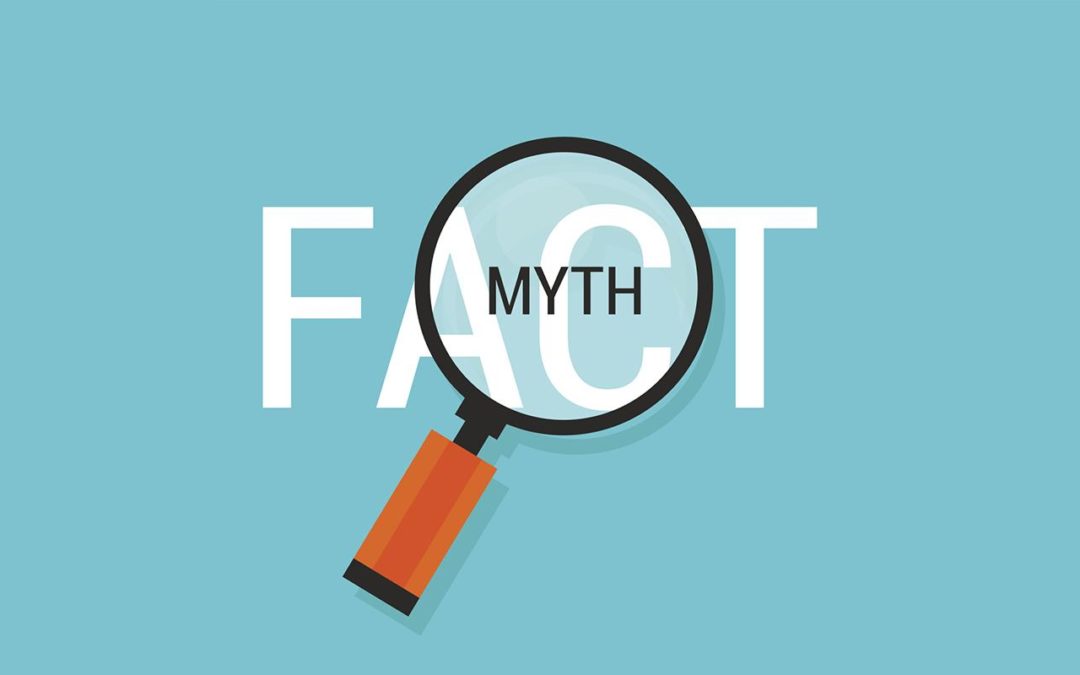Depression is complex and highly unique to each individual. The word itself varies so much in terms of how each person uses it. Some people use to the words such as “that was depressing” when thinking of a story, others can say “I’m so depressed” during extra trying times. Depressive symptoms can also be caused by non-psychiatric conditions (e.g. hypothyroidism), substance intoxication or withdrawal, and even more, there are subtypes of clinical depression. That being said, the ideal treatment for depression varies substantially from person to person because the cause for each circumstance is so unique. It is not surprising that there can be a lot of confusion, not just about what it is, but how it is treated. We will try to address some of these myths.
1.Using medication means “I can’t do it on my own.”
The brain, like any organ of the body can experience dysfunction. One analogy I like to make is that of diabetes. There’s subtypes of diabetes. Some of us are more susceptible to developing it in than others. Some of us have it more severe than others. In ideal circumstances, depression, like diabetes, can be managed by non-pharmacologic interventions. If we lose weight, eat healthy, and stay active, maybe that’s all we need. But for someone of us, due to our unique physiology, that is not sufficient. And also like diabetes, having depression has consequences. The obvious one is the risk of suicide. But also, missed days of work, poor work performance, and studies have also shown a shorter life span! On average, 10 years, and this not all due to suicide.
2.Taking medication means I will get “dependent on it.”
Most mainstay pharmacologic interventions (selective serotonin reuptake inhibitors, serotonin norepineprhine reuptake inhibitors, tricyclics, antipsychotics) do not have any known means of causing physiologic dependence. On the other hand, stimulants and benzodiazepines do cause physiologic dependence. Dependence means your body in simple terms “gets used to it.” For example, if a benzodiazepine is taken every day, the initial anxiety reducing effects will eventually taper off until the individual feels no benefit from it anymore, but discontinuing it will cause intense rebound anxiety at certain doses. However, all medications, in the correct candidate and circumstance has their role as long as it is not misused. I’ve had some patients who opted to discontinue medications such as their antidepressants to see if it remains necessary, which in some cases is a reasonable request as I understand we all ideally do not want to take medications if they are not needed. In some cases the depression returned, and some patients became concerned their bodies became “dependent.” That as has not been shown to be the case in the medical literature. Another analogy I make is with high blood pressure. Some of us still have persistent elevated blood pressure despite attempts in lifestyle to reduce it. So some individuals end up needing medication for blood pressure. In much the same way, as the medication is removed, the blood pressure may rise again.
3.”I’ve been taking the medication every day, I even tried three antidepressants but my depression is not gone. I’ll never get better/the treatments don’t work.”
In cases like these, I usually review with the patient to first and foremost, take a cold hard look the diagnosis. In other words, what is causing this patient to have persistent symptoms. Some patients have more stubborn cases of primarily clinical depression. Other tangible causes include: other medications, medical disorders, alcohol and other substances (even in moderation–some of us are more prone to their depressive effects), comorbid personality pathology, and psychosocial stressors. Even in cases of primarily depression that tend to be more stubborn, there is a plethora of various therapy modalities (non-medication based) that can help with medication, rigorous exercise, lifestyle interventions, and numerous pharmacologic interventions. In other words, there are any ingredients that can be adjusted in this recipe towards the road for well being that can still be explored.
Finally, one treatment intervention that is still not well known, is TMS (transcranial magnetic stimulation) for depression. In our office, we have a comparatively high remission rate and we are the only provider in the Milwaukee area that offers deep TMS which is clinically proven to have a higher response rate than other TMS practices. If you are at all even the slightest curious, do not hesitate at all to reach us. You can speak with Dr. Hong Yin directly and we are able to get new patients seen generally within a week and easily around your work schedule!

